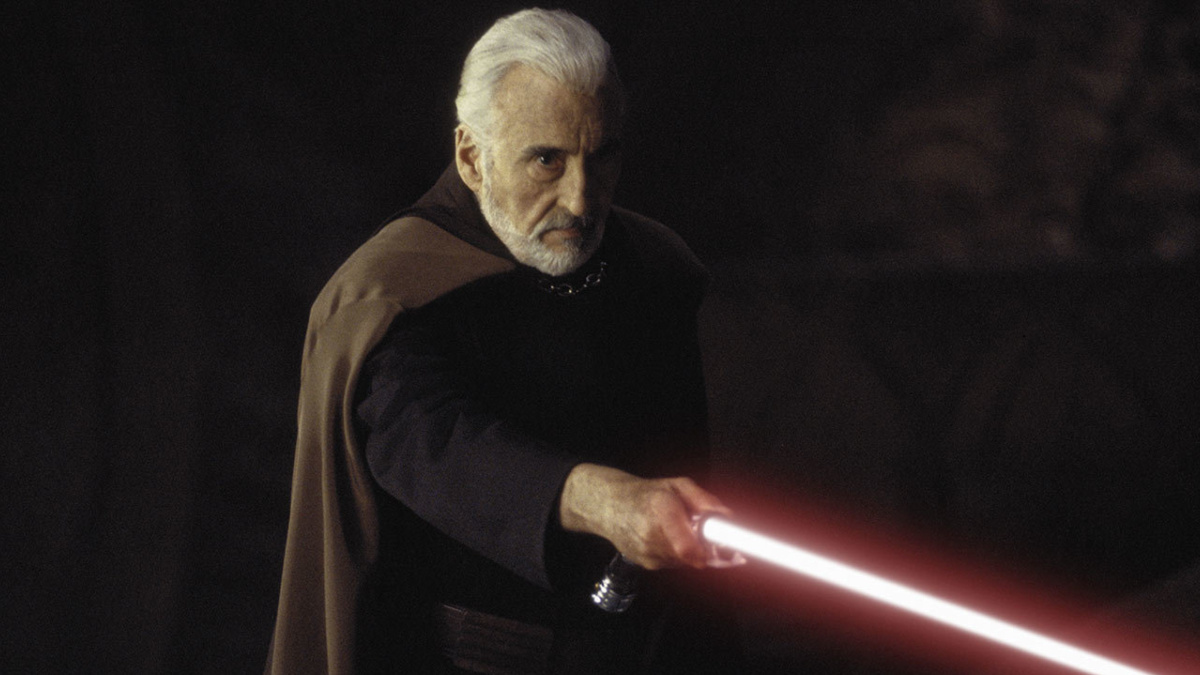
The journey of a Jedi involves rigorous self-control, sacrifice, and strict adherence to a set of rules. Yet, the allure of the dark side can be overwhelming, offering power, dominance, and unimaginable possibilities. While some are lured by greed or ambition, others have deeper reasons for their descent. In the vast universe of Star Wars, numerous Jedi Knights and apprentices strayed from their oaths, drawn towards the dark side, convinced they were serving a higher purpose. Their stories demonstrate that the boundary between good and evil isn’t always as distinct as the Jedi Council might suggest. These characters, in their own tragic fashions, sought to mend a flawed system or establish justice in ways the Jedi Order refused or struggled to accomplish.
In my perspective, their downfalls aren’t merely stories of corruption, but rather serve as warning tales. These narratives highlight how even a venerable and enduring institution like the Jedi Order could sometimes let down its most devoted followers.
Anakin Skywalker

Anakin Skywalker’s transition to the dark side was a gradual process rather than a sudden plunge. It was primarily fueled by his profound fear for the safety of those he cared about and his growing disillusionment with the Jedi Order, particularly the treatment Ahsoka Tano received from the Council. As Anakin’s affection for Padmé Amidala deepened, his troubles intensified, culminating in a clandestine marriage. The recurring vision of Padme dying during childbirth added to Anakin’s distress, driving him to explore any possible means to save her. Unfortunately, Palpatine exploited this vulnerability, persuading Anakin that the dark side was the only solution to prevent Padme’s demise.
Anakin Skywalker’s transition from a revered Jedi Knight to the menacing Sith Lord Darth Vader was driven by his convictions that he was asserting control over his fate, correcting the perceived flaws within the Jedi Order, and protecting his spouse. He viewed the Jedi’s rule as an impediment that hindered the Order from effectively aiding others. In his thoughts, he was establishing order in a disorderly galaxy to prevent further suffering, which he believed he had endured. This transformation was not merely about seeking power, but rather about a distorted form of love.
Count Dooku

Count Dooku, initially a revered Jedi Master under Qui-Gon Jinn, eventually grew disenchanted with both the Jedi Order and the Galactic Republic due to his perception of systemic corruption within the Republic, viewing the Jedi as mere puppets, unknowingly sustaining a flawed regime. Driven less by personal ambition or the pursuit of power, he sought drastic reforms to establish what he believed was a fairer government. In his eyes, the Jedi had veered off course, prioritizing politics over serving the populace.
Dooku’s conviction that the Jedi were tainted by corruption and straying from their true Order principles caused him to turn towards the Sith, viewing it as the means for galactic reform due to its power. Initially, he allied with Palpatine with the ambition of establishing a fresh order, devoid of bureaucracy and corruption. His descent was a philosophical one, arguably rational, particularly during the Clone Wars.
Barriss Offee

Barriss Offee’s act of betrayal mirrored Dooku’s in that they both felt the Jedi were straying from their true purpose during the Clone Wars. They saw the Jedi stepping into military roles rather than maintaining peace, and Offee took this dissatisfaction to an extreme level. In her departure from the Jedi Order, she organized a bombing at the Jedi Temple and falsely accused her friend Ahsoka Tano of the act as a misguided effort to expose the hypocrisy within the order. Interestingly, Offee’s actions contributed significantly to both Ahsoka and Anakin becoming disillusioned with the Jedi Order, although their subsequent paths diverged greatly.
According to Offee, the Jedi had transformed into what they initially opposed – tools of violence and control. Her extreme stance can be seen as a plea for recognition of the Jedi’s ethical shortcomings, coming from someone who was essentially a child soldier herself. She felt that the Order could only be redeemed by dismantling it and making them face their own deeds. This, however, was a bittersweet twist, as her actions ultimately led to the tragic outcome of the Order’s destruction.
The Grand Inquisitor
The once loyal Temple Guard, who had been trained as a Jedi, was swayed towards darkness due to his disillusionment with the Jedi Order’s inability to safeguard their own members. As a guardian of the Jedi’s principles, he remained silent and steadfast. However, the Jedi Council’s judgement against Barriss Offee and their subsequent involvement in the Clone Wars stirred doubts within him about the values he had upheld. Over time, he began to perceive the Jedi Order as an institution with inherent flaws.
His choice, post the Republic’s downfall, to embrace the role of an Inquisitor was a deliberate step towards restoring order in a galaxy plagued by chaos. Leveraging his Force-sensitivity and skills, he was prepared to track down, even former allies, if necessary. He perceived that the Jedi Order’s inflexibility posed a danger to harmony, and he saw the Empire as the means to achieve peace. His shift towards the dark side was a calculated move; a choice to align with the prevailing faction and establish a new form of order that he considered a regrettable yet necessary evil.
Reva Sevander

Reva Sevander’s transformation into the Third Sister in Star Wars: Obi-Wan Kenobi was largely fueled by a desire for revenge. As a youngling, she was among the few who survived the tragic massacre at the Jedi Temple, an event that left her with deep emotional scars from witnessing her fellow younglings being murdered. This traumatic experience instilled in her a fierce hatred towards the man who was once Anakin Skywalker, now known as Darth Vader for his betrayal of the Jedi Order. To get close enough to him and exact her revenge, she joined the Inquisitorius under false pretenses, not with the intention of serving the Empire, but rather to bring about justice against Vader for his treachery.
Her affinity for the dark side served as a strategic move towards her long-desired retribution, yet it was merely a guise to maintain allegiance with the Empire. Despite this apparent loyalty necessitating heinous acts in the name of the Empire, she didn’t genuinely succumb but skillfully feigned devotion. Her perceived ‘fall’ wasn’t driven by power or ideology, but rather a deeply personal pursuit for justice and resolution, making her an exceptionally tragic character. Her actions were primarily fueled by childhood traumas and an unyielding thirst for revenge.
Read More
- How to Get the Bloodfeather Set in Enshrouded
- Gold Rate Forecast
- 4 TV Shows To Watch While You Wait for Wednesday Season 3
- Auto 9 Upgrade Guide RoboCop Unfinished Business Chips & Boards Guide
- 10 Movies That Were Secretly Sequels
- One of the Best EA Games Ever Is Now Less Than $2 for a Limited Time
- Goat 2 Release Date Estimate, News & Updates
- Best Werewolf Movies (October 2025)
- 32 Kids Movies From The ’90s I Still Like Despite Being Kind Of Terrible
- Best Thanos Comics (September 2025)
2025-08-15 00:52